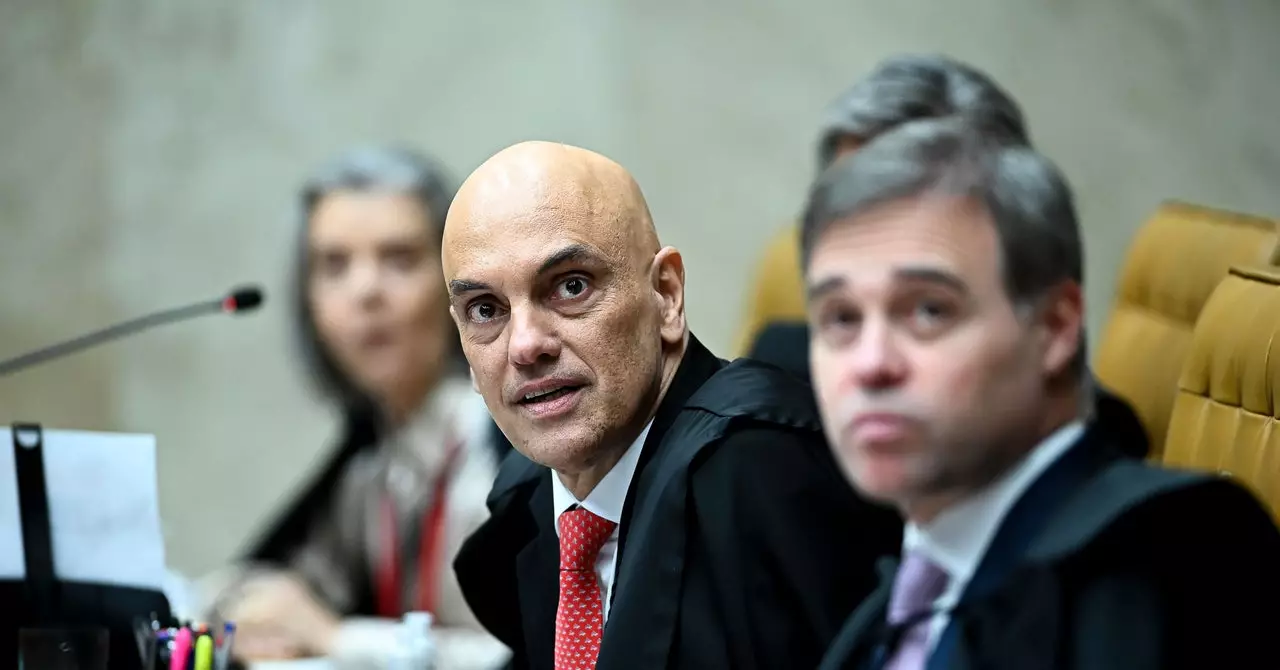In a country with a population of over 200 million people, Brazil’s top court is on the verge of blocking access to a certain website, causing tension between a prominent judge and the site’s owner, Elon Musk. This conflict stems from a months-long feud between Musk and Supreme Court Judge Alexandre de Moraes regarding the website’s moderation policies. Earlier this year, Moraes initiated an inquiry against the website after Musk refused to comply with a court order to block accounts that supported former right-wing President Jair Bolsonaro, allegedly spreading fake news and hate speech.
One of the key issues at play is the legal requirement for internet firms to have a legal representative in Brazil who can serve as a liaison between the government and the company. In this case, the website in question does not have a legal representative in Brazil, as it closed its offices in the country earlier in the year. This move came after Moraes allegedly threatened the legal representative with arrest as part of the inquiry. A deadline imposed by the Supreme Court for the website to appoint a new legal representative has already passed, setting the stage for potential action.
Given the circumstances, it is anticipated that Judge Alexandre de Moraes will order the website to be shut down in Brazil in the near future. The website’s global affairs account took to social media to denounce Moraes’ actions, claiming that the judge’s orders to censor political opponents were illegal. The website highlighted that those targeted included a duly elected Senator and even a 16-year-old girl, among others. Musk joined the discourse by referring to Moraes as “an evil dictator cosplaying as a judge,” intensifying the clash between the parties involved.
The website categorically opposed the court’s decisions, labeling them as illegal under Brazilian law. It asserted its intention to publish all related court documents in response to the controversy. Meanwhile, Moraes’ office has yet to provide a comment on the matter, leaving the situation unresolved. Despite the ongoing dispute, the website remained accessible in Brazil as of Friday morning, with users actively engaging from major cities like São Paulo and Rio de Janeiro.
Nevertheless, signs indicate that actions are being taken behind the scenes. Moraes recently froze bank accounts belonging to Starlink, the satellite internet company partially owned by Musk. In response, Starlink denounced the move as unfounded, emphasizing that the company has a significant customer base in Brazil. The situation escalated as fines were imposed on the website for failing to comply with document requests, leading Starlink to seek legal recourse against the allegations.
The potential blocking of the website in Brazil carries significant weight, particularly within the broader context of global efforts to regulate large online platforms and their billionaire owners. Notably, this development occurs amidst a wave of scrutiny toward tech billionaires and their digital empires. Just this week, Telegram CEO Pavel Durov faced legal action in France, showcasing a trend of heightened accountability for platform owners regarding content moderation and legal compliance.
The impending shutdown of the website in Brazil reflects a complex interplay between legal requirements, free speech concerns, and power dynamics involving influential figures like Musk and Judge Moraes. As the situation unfolds, it underscores the challenges inherent in balancing digital freedom with regulatory oversight in an increasingly interconnected world.

